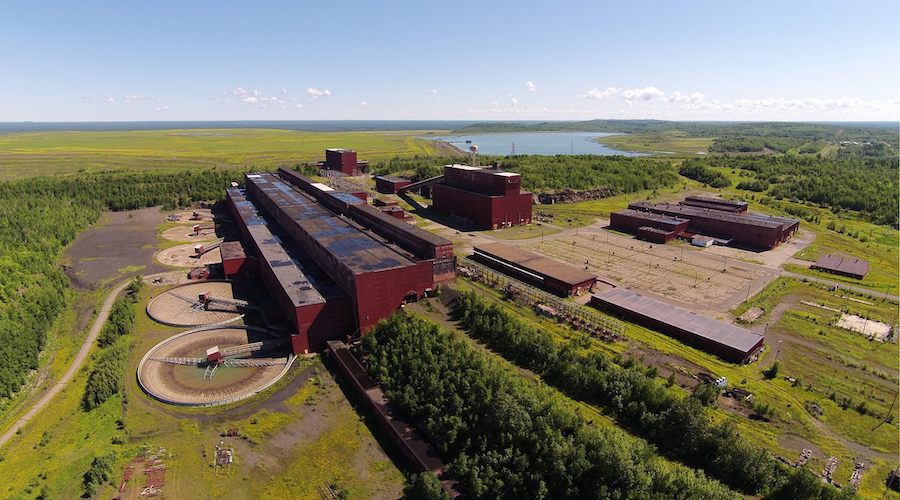EPA says PolyMet’s copper-nickel mine in Minnesota may affect Wisconsin’s, Fond du Lac’s water quality

It is now up to both the Fond du Lac Band of Lake Superior Chippewa and Wisconsin to decide whether to respond to the EPA and whether to request that the Army Corps of Engineers hold a hearing
Since the EPA’s downstream water quality determination is a prerequisite for the section 404 wetlands permit issued to PolyMet by the ACE, the Corps placed the permit on hold during the Agency’s review. This hold is expected to remain in place during any hearing.
In response to the notice, PolyMet issued a statement pointing out that both the reservation and the state are located well over 100 river miles downstream from the project and that the EPA’s decision does not say that NorthMet will affect downstream water quality, only that such an effect is possible.
“The Minnesota Pollution Control Agency certified in 2018 that the project would not affect in-state water quality under section 401 of the Clean Water Act,” the statement reads. “PolyMet now will present the evidence on which the MPCA relied to the Army Corps of Engineers, which will likely require a hearing to make a final decision on the project’s downstream water quality effects.”
The Toronto-based miner also said that when in operation, its project will collect and treat water, including water that holds mercury and other contaminants from historical taconite mining, resulting in a net reduction of contaminants to the St. Louis River system.
“I am hard-pressed to understand how our treated water can meet water quality standards at the point of discharge and at other downstream communities closer to the project site, and actually reduce overall mercury loading to the river, but somehow ‘may affect’ water in places located more than 100 river miles downstream,” Jon Cherry, chairman, president and CEO of PolyMet, said in the press brief. “We disagree with the EPA’s new conclusion since the science is clear that water discharges from the NorthMet mine will not only meet water quality standards but are proven to have a net benefit to the St. Louis River’s water quality.”
Not its first rodeo
In late April, the Minnesota Supreme Court ordered the Minnesota Department of Natural Resources (DNR) to reconsider some permits needed by PolyMet to build its mine, in particular those that referred to a tailings dam facility.
The Court also affirmed a 2020 decision by the Minnesota Court of Appeals to reverse the DNR’s decision to grant PolyMet a critical “permit to mine” because the state agency failed to set a fixed term for the permit. It ordered the DNR to set an appropriate term.
The justices held that the DNR had to conduct a trial-like proceeding known as a “contested case hearing” to gather more information on whether the planned bentonite clay lining for the waste basin will work as intended.
The $1-billion NorthMet project has been met with criticism and resistance from environmental groups who are concerned about its potential impact on nearby water sources
PolyMet’s permit to mine called for bentonite clay to be applied to the outer slopes, beaches and pond bottom to limit oxygen infiltration into the tailings basin after mining ceases.
The Court’s decision, however, was taken positively by the miner because it allows for the hearing to be limited only to the tailings issue, whereas a previous order by a lower court called for an open-ended contested case hearing on every issue raised by project opponents.
The $1-billion NorthMet project has been met with criticism and resistance from environmental groups such as the Minnesota Center for Environmental Advocacy, who are concerned about its potential impact on nearby water sources.
Prior to April’s decision, the Supreme Court had ruled in February in favor of the Clean Air Act permit issued to the company by the Minnesota Pollution Control Agency, overturning an order by the state Court of Appeals that had remanded the permit back to the agency.
On the central legal argument in that case, the high court held that the lower court had “relied on an erroneous interpretation of federal law” when it ruled against PolyMet. The case was returned to the Court of Appeals for resolution of a few remaining items not specifically addressed in its original decision and a final ruling is expected by late July.
Set to be Minnesota’s first copper-nickel mine, NorthMet is also the first large-scale project to be moving forward within the Duluth Complex, one of the world’s major, undeveloped mining regions. Once in operation, it will reuse existing infrastructure from the former LTV Steel taconite processing site.
According to PolyMet Mining, the project comprises 290 million tonnes of proven and probable reserves grading 0.288% copper and 0.083% nickel and marketable reserves of palladium, cobalt, platinum and gold.




